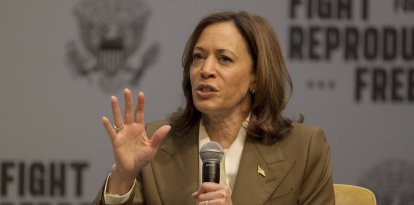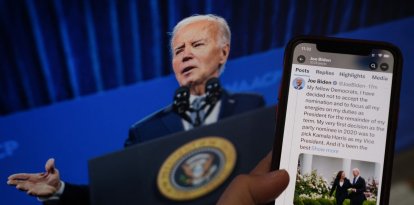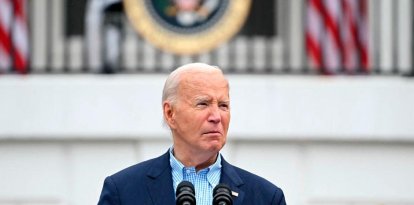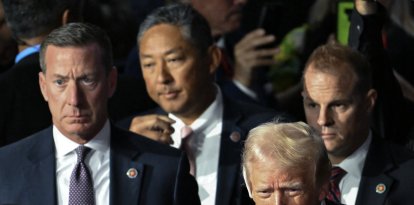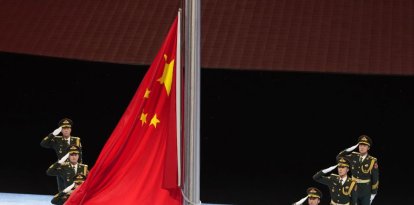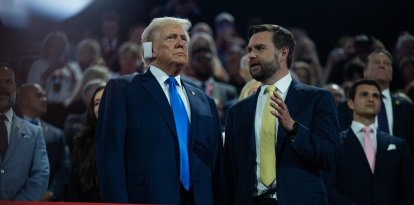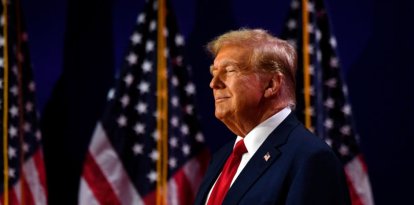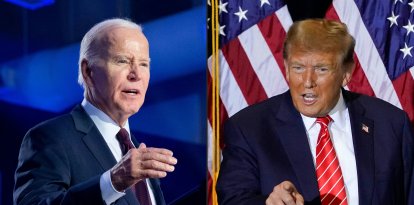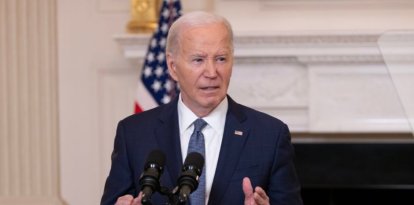TikTok: China's Instrument of War
China's Communist Party this month mobilized TikTok's American users to contact their elected representatives to block House legislation. Users did so in droves. Imagine if TikTok were to push China's other political messages, such as urging the abandonment of Taiwan.
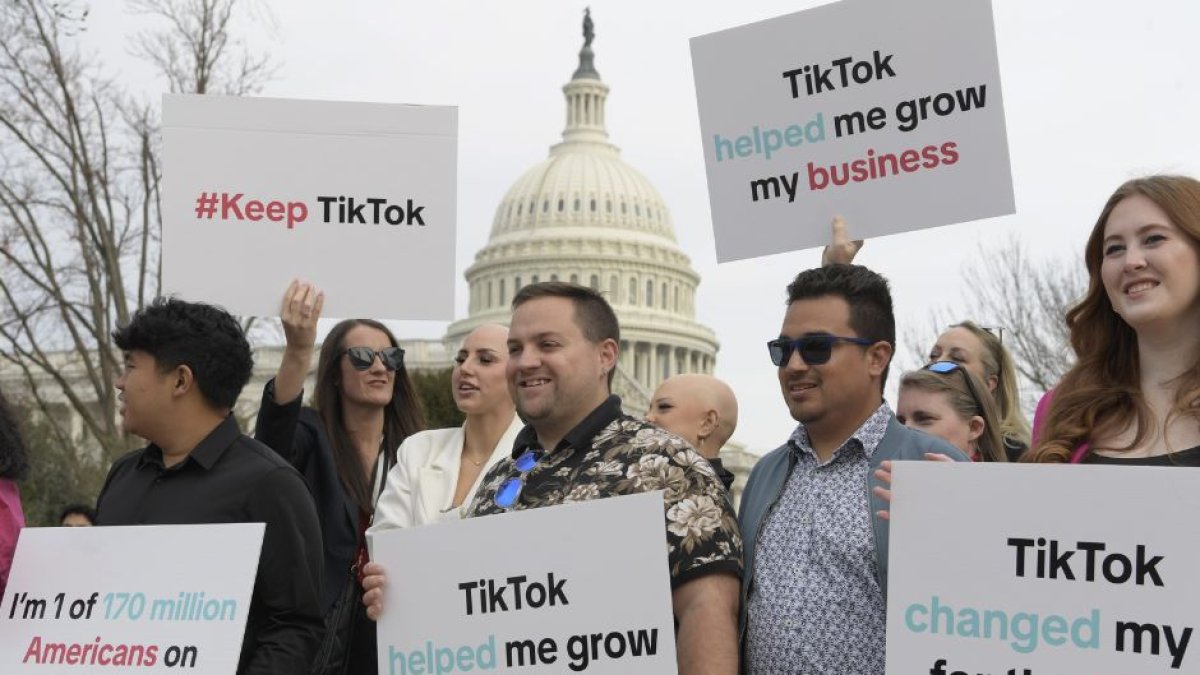
(Influencers de TikTok protestan frente al Congreso / Cordon Press)
Yesterday, March 13, the U.S. House of Representatives passed the "Protecting Americans from Foreign Adversary Controlled Applications Act" by a vote of 352 to 65, with one member voting present. It was a victory for the United States.
The bill, H.R. 7521, requires the "qualified divestiture" — as determined by the president — of any company controlled by a foreign adversary, within 180 days. The proposed act specifically mentions TikTok, a wildly popular video-sharing app, and its Chinese parent ByteDance Ltd. as such companies.
The bill also provides that the president may designate social media apps as "subject to the control of a foreign adversary" and therefore covered by the divestiture rule. If a divestiture does not occur during the 180-day period, the legislation prohibits U.S. app stores and web hosting services from providing a designated app to the public.
Proponents of the legislation want to make sure that TikTok can never again send data of its American users — now numbering 170 million — to China. TikTok CEO Shou Chew has repeatedly denied that his app has ever done so. On January 31, for instance, he told the Senate Judiciary Committee that the app "never provided" data to China, but reporting, including an especially detailed BuzzFeed News piece from June 2022, make it clear that Chew's numerous assurances were false.
As the Wall Street Journal reported this week, opponents of the House bill contend that TikTok had taken steps to ensure that "all U.S. user data is stored in an Oracle cloud, not overseas and that fears about the service are overblown." The Oracle cloud arrangement, known as "Project Texas," has not been fully implemented and is faulty in conception.
Project Texas deals with only one of two national security threats posed by the most powerful social media platform in history. "Never has the world seen a social media app spread more wildly—or an algorithm that anticipates your desires more precisely—than TikTok," Axios wrote March 2022.
China's Communist Party this month mobilized TikTok's American users, with deceptive messages, to contact their elected representatives to block the House legislation.
If you have TikTok on a device, you are getting what the Communist Party of China (CCP) wants you to see. The Chinese regime has used its algorithm to disseminate pro-Hamas disinformation, Russian narratives about the Ukraine war, and other pro-CCP propaganda. The Party also uses the app to try to destroy America's young, by flooding them with messages promoting illegal drug use, self-harm, and even suicide. As Australia-based national security analyst Paul Dabrowa tells Gatestone, the TikTok algorithm "exacerbates mental health issues of U.S. teens and makes them hate democracy."
"The Chinese Communist Party employs TikTok as a Trojan Horse to infiltrate, propagandize, and subvert America," Kerry Gershaneck, author of Political Warfare: Strategies for Combating China's Plan to "Win Without Fighting," told me this month.
There's no doubt that TikTok is powerful. China's Communist Party this month mobilized TikTok's American users, with deceptive messages, to contact their elected representatives to block the House legislation. Users did so in droves. Imagine if TikTok, in different circumstances, were to push China's other political messages, such as urging the abandonment of, say, Taiwan.
Beijing has even allowed TikTok to be employed for dirty political tricks. Supporters of Joe Biden, a presidential candidate at the time, used TikTok to disrupt at least one Trump campaign event, in Tulsa in June 2020.
The 2024 Annual Threat Assessment of the U.S. Intelligence Community, released by the Office of the Director of National Intelligence on the 11th of this month, reports that China also used the app to interfere in the 2022 mid-term elections in the U.S. In testimony on the following day, Director of National Intelligence Avril Haynes said that she could not rule out the Chinese Communist Party using TikTok in the upcoming election.
The Communist Party of China has no constitutional right to attack America.
China has even weaponized TikTok, turning it into an instrument of war. The CCP wages what it calls "unrestricted warfare" against America. "Unrestricted warfare" is apt.
Radio Free Asia reported in August 2020 that a People's Liberation Army intelligence unit, working out of China's now-closed Houston consulate, was using big data to identify Americans likely to participate in Black Lives Matter and Antifa protests, and then sent them "tailor-made" videos on how to organize riots. Related reporting reveals the videos were distributed by TikTok. Fomenting street violence in another country is an act of war.
How important is the TikTok algorithm to the Chinese regime? President Donald Trump tried to force a sale of the app to Oracle in 2020. The deal floundered not over price but over control of the algorithm.
First Amendment
Powerful voices have spoken out in opposition to Congressional action on TikTok, notably Senator Rand Paul (R-Ky). On March 8th he signaled that he opposed the TikTok legislation on constitutional grounds, posting "Why not just defend the First Amendment?" Maria Cantwell (D-Wash), who as chair of the Senate Commerce Committee will consider the House bill, said she would "try to find a path forward that is constitutional and protects civil liberties."
The TikTok bill, however, does not violate the First Amendment.
Of course, people creating and posting videos are entitled to First Amendment protections, but Congress is not trying to regulate what appears on the app. As FCC Commissioner Brendan Carr and others have pointed out, the TikTok bill regulates the conduct of ByteDance and TikTok; it does not regulate the content of what is posted.
Some have complained that the bill delegates too much power to the president, but the Constitution gives the Commander in Chief broad powers to protect America from foreign adversaries and enemies. Moreover, the proposed act contains safeguards limiting the president's discretionary powers. In short, the Communist Party of China has no constitutional right to attack America.
In August 2020, President Trump, to his credit, invoked the International Emergency Economic Powers Act of 1977 to ban TikTok.
President Biden reversed the ban, and his reelection campaign — "Biden HQ"— joined the Chinese-owned platform last month. The Democratic National Committee signed on to TikTok in March 2022. Now, even Trump does not like the attempt to get rid of the app. The former president signaled opposition in a Truth Social posting on the 7th.
It is time, however, to take TikTok from China.
Let's remember, China's regime has used TikTok maliciously, as in the Radio Free Asia report above.













